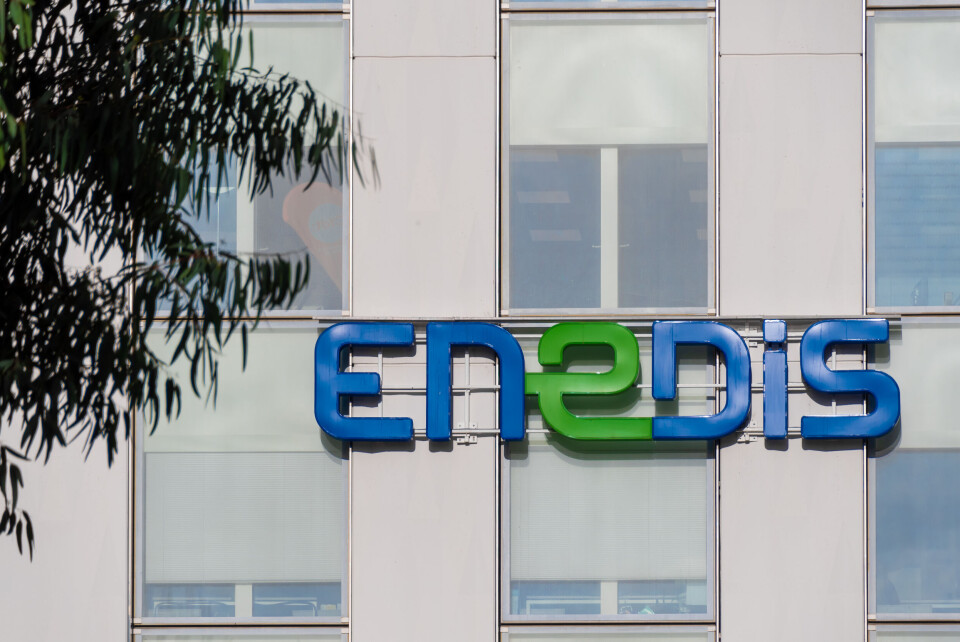-
More than 5,000 French communes use AI to identify poor rubbish sorting
Badly-sorted rubbish can cost millions so communes are turning to high-tech solutions
-
Tax on well-off retirees under consideration for 2026 budget
‘Nothing is off the table’ when it comes to finding €40 billion in savings says Labour Minister
-
Nice airport records passenger boom as tourists flock to city
Airport figures exceeded the pre-Covid record last year, with US visitors significant contributors
Enedis’ energy-saving water heater plan: five questions and answers
The energy company will be allowed to deactivate the water heater mechanisms of 4.3 million customers from 12:00-14:00 over the winter

French energy company Enedis has the right – because of a recent decree – to temporarily prevent heaters from triggering in the hot water tanks of around 4.3 million of its clients as part of energy-saving measures.
Read more: Enedis’ right to turn off water heaters in France: Are you affected?
This could free up 3.5 gigawatts per day over the relevant time period, equivalent to the output of three and a half nuclear reactors. This will help to reduce pressure on the system during the lunchtime rush on electrical devices and avoid the risk of power cuts.
However, Enedis has assured that it will have little to no impact on customers, saying it will have neither affect “their comfort, nor their bill”.
We look at some key questions and answers surrounding this measure.
Who does this affect?
This concerns customers who have a Linky meter and a peak/off peak contact (heures pleines-heures creuses).
It should also be noted that it will only affect those who are normally in an off-peak period between 12:00 and 14:00.
Of the 4.3 million customers concerned, the majority are private individuals, according to Enedis.
However, there are also some businesses and local authorities, who are signed up to a contract of 36 kVA (kilovolt-amperes) or less.
When will the heaters be deactivated?
Enedis will be able to suspend the power supply to water heaters remotely through a switching device accessed through Linky meters for a maximum of two hours, between 11:00 and 15:30.
This will most likely be done between 12:00 and 14:00 as this is considered a peak time for electricity consumption.
The deactivation will happen daily, including on weekends.
Essentially, customers who have off-peak hours around midday will see them temporarily eliminated – because this is a time when the network comes under strain – and so their water heaters will not be automatically triggered to warm the contents of their tank.
Will I still have hot water at these times?
Yes, you will still have a supply of hot water because your tank will still be heated during the night.
“With six hours of heating [at night], you will have enough hot water for everyday usage during this midday period,” Enedis has said.
So, unless you have a long shower or bath between 12:00 and 14:00, or you use a lot of hot water for another reason, you should not notice the difference.
Using appliances such as a washing machine or dishwasher should not pose a problem either.
Non, RTE ne va pas "couper l’eau chaude" !
— RTE (@rte_france) October 5, 2022
Jusqu’au 15 avril 2023, l’eau des ballons d’eau chaude ne sera plus chauffée de 12h à 14h, mais les consommateurs auront toujours de l’eau chaude toute la journée car… pic.twitter.com/xrsAKZdr2b
Enedis has also said that it will be possible for customers to manually restart the water heater if they want to.
Will I be warned by my supplier?
Enedis’ early afternoon deactivation of water heaters was allowed by law to begin “on October 1 at the earliest and on November 1 at the latest”.
It will finish “on April 15, 2023 at the earliest and on May 15, 2023 at the latest”.
Enedis has set the dates at October 15 until April 15 and has already communicated with suppliers on this point.
Customers should therefore be warned if their water heaters are to be included in the plan by tomorrow (October 7) at the latest.
This will likely be by email or text.
Would this not end up using more energy?
The French agency for ecological transition, Ademe, has recommended that individuals avoid switching off the power supply to their hot water tanks for short periods, because “maintaining the water at a certain temperature needs less energy than heating it from cold”.
However, with Enedis’ energy-saving plan, the same amount of electricity will be fed into the tank – so keeping the water hot – but simply during off-peak hours at night rather than during the day.
“We are really flattening the curve of consumption spikes, pushing them into the night,” Enedis has said.
Related articles
Tips for saving hundreds of euros on annual energy bills in France
Energy costs: French mayor buys pupils fleeces as heating drops to 19C
French TV news gives weather report-style electricity usage updates
























